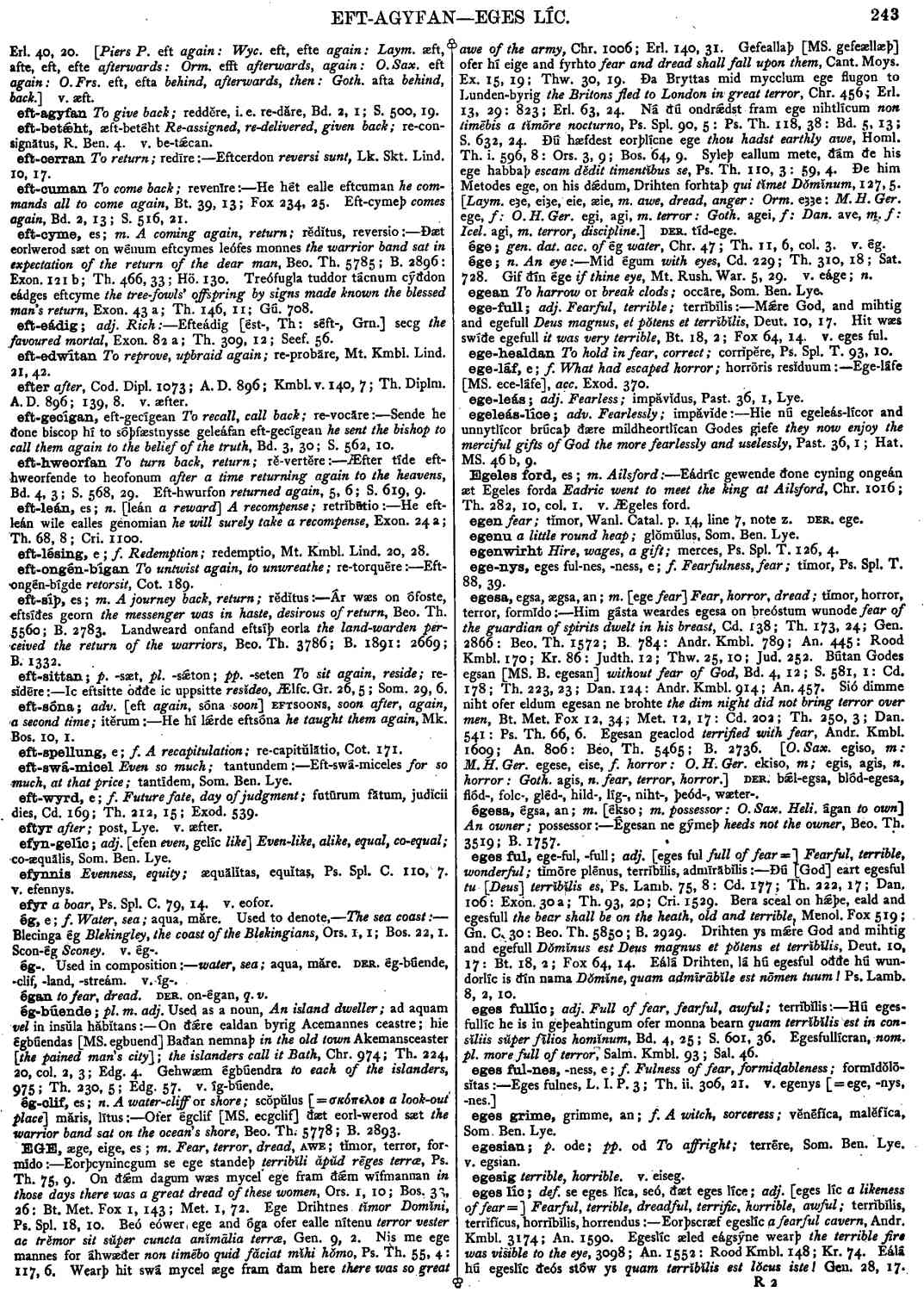EGE
- noun [ masculine ]
-
Eorþcynincgum se ege standeþ
terribĭli ăpŭd rēges terræ,
- Ps. Th. 75, 9.
-
On ðǽm dagum wæs mycel ege fram ðǽm wífmannan
in those days there was a great dread of these women,
- Ors. 1, 10;
- Bos. 33, 26: Bt. Met. Fox 1, 143;
- Met. 1. 72 .
-
Ege Drihtnes
tĭmor Domĭni,
- Ps. Spl. 18, 10.
-
Beó eówer ege and óga ofer ealle nítenu
terror vester ac trĕmor sit sŭper cuncta anĭmālia terræ.
- Gen. 9, 2.
-
Nis me ege mannes for áhwæðer
non timēbo quid făciat mĭhi hŏmo,
- Ps. Th. 55, 4: 117, 6.
-
Wearþ hit swá mycel æge fram ðam here
there was so great awe of the army,
- Chr. 1006 ;
- Erl. 140, 31.
-
Gefeallaþ [MS. gefeællæþ] ofer hí eige and fyrhto
fear and dread shall fall upon them,
- Cant. Moys. Ex. 15, 19;
- Thw. 30, 19.
-
Ða Bryttas mid mycclum ege flugon to Lunden-byrig
the Britons fled to London in great terror,
- Chr. 456 ;
- Erl. 13, 29: 823 ;
- Erl. 63, 24.
-
Ná ðú ondrǽdst fram ege nihtlícum
non timēbis a tĭmōre nocturno,
- Ps. Spl. 90, 5: Ps. Th. 118, 38: Bd. 5, 13;
- S. 632, 24.
-
Ðu hæfdest eorþlícne ege
thou hadst earthly awe,
- Homl. Th. i. 596, 8: Ors. 3, 9;
- Bos. 64, 9.
-
Syleþ eallum mete, ðám ðe his ege habbaþ
escam dĕdit timentĭbus se,
- Ps. Th. 110, 3: 59, 4.
-
Ðe him Metodes ege, on his dǽdum, Drihten forhtaþ
qui tĭmet Dŏmĭnum,
- 127, 5.
- [Laym, eȝe, eiȝe, eie, æie, m. awe, dread, anger: Orm. eȝȝe: M. H. Ger. ege, f: O. H. Ger. egi, agi, m. terror: Goth. agei, f: Dan. ave, m. f: Icel. agi, m. terror, discipline.
Bosworth, Joseph. “EGE.” In An Anglo-Saxon Dictionary Online, edited by Thomas Northcote Toller, Christ Sean, and Ondřej Tichy. Prague: Faculty of Arts, Charles University, 2014. https://bosworthtoller.com/9092.
Checked: 1